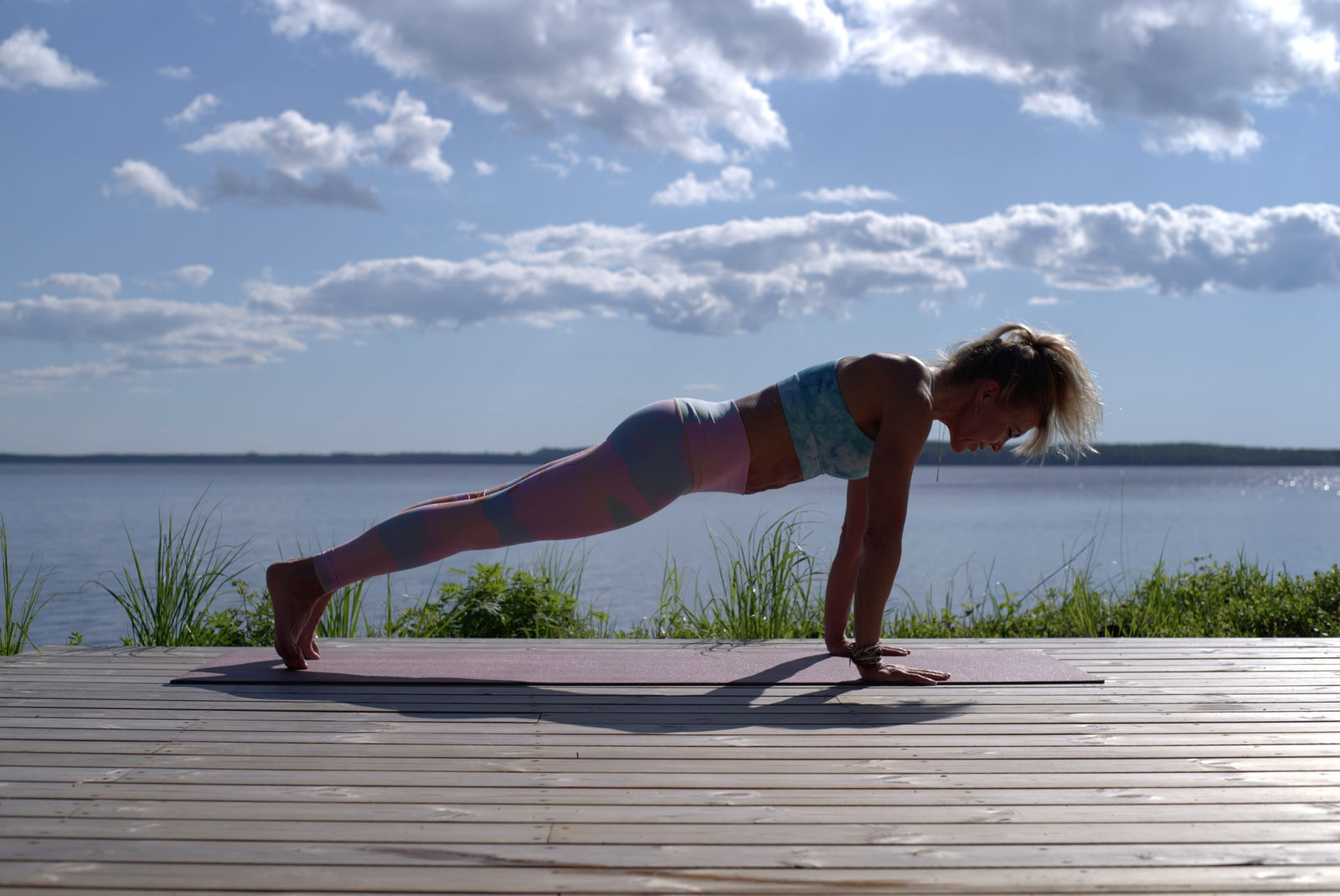Photo by Gabrielle Henderson on Unsplash
If you’re constantly feeling exhausted lately, know that there are many different possible reasons why. Maybe it’s the whole work-from-home arrangement and coping with the pandemic thing. Perhaps there’s too much on your plate. Or it could be the stress of the holiday season and how to celebrate it differently this year.
Or maybe it’s 2020, ‘nuff said.
But if you find yourself just feeling tired – physically and mentally – most of the day, then maybe it’s time to have a closer look and see if any of the below reasons apply to you.
What are the causes of fatigue?
#1 Not enough sun
You know what they say – the sun is an instant pick-me-upper! It’s not just because going outdoors gets you out of the four walls that you always see (especially when you’re working from home), but because of Vitamin D.
If you have low levels of vitamin D, then it’s likely for you to get chronic fatigue syndrome. It may be tricky to go outdoors especially if you get caught up with heavy workload. But develop a habit of squeezing in a time for a break – come out for a walk around the block (socially-distanced!), or even just sit out in the balcony to get that much needed vitamin D. Get yourself sun-kissed every once in a while. You’ll thank yourself for it.
#2 Not enough movement
When you get out in the sun, you’re killing two birds with one stone. You’re getting your system the vitamin D AND clocking in some movements.
Yes your body needs to move. The thing about staying at home – whether because of winter off-season or self-quarantine – is a step closer to sedentary lifestyle.
Don’t fall into that trap! There are many ways to stay active and fit during a winter lockdown. And it may sound counter-productive, but a workout when feeling (mental) fatigue can help turn things around.
Working out and exercise produce happy hormones – or endorphins. This comes in the form of a “runner’s high” or the feeling of being on top of the world after a nice jog. Or a generally happier disposition after a session of yoga. In fact, studies show that exercise leads to a better mood because of the changes it does in your brain, both short-term and long-term. [1]
According to research, 20 or 30 minutes of aerobic exercise can help your body release endorphins, chemicals that when interacting with receptors in your brain, can reduce your perception of pain and bring a positive vibe. This can also release serotonin and dopamine, mood-enhancing chemicals that can stay within your system over the next couple of hours post-workout.
#3 Unhealthy diet
Living a busy lifestyle, us women tend to forget to eat (or personally, I get lazy with cooking when there’s just a mountain of work to be done!) But this doesn’t do justice with our energy levels.
We need fuel to function. So if we end up eating junk or whatever is within reach (crackers, biscuits, or worse a bag of chips), we’re not really letting our body function properly.
Constantly find yourself exhausted? It may not just be because of the things on your plate. Take a closer look at your diet.
If you know you’re going to have an incredibly busy day (or week), do some meal prep at the start of the day or week. Your meals don’t have to be complicated to be healthy. You can take the simple approach of incorporating different foods that will provide protein, fiber, and some healthy fat. Have some berries, spinach, avocado, omelet, salad, zesty chicken breast, fruits, vegetables, whole grains, and other foods that you enjoy eating but provide the right nutrients at the same time! [2]
To keep your energy up throughout the day, aim to have three healthy, well-balanced meals and two small snacks—one in the morning and another in the afternoon. Steer clear of sugars and junk foods. Stick to water for drinks and forget about soda and other sweet alternatives. [3]
#4 Not clocking in enough hours for sleep
Perhaps the most obvious reason for feeling tired is not getting enough sleep the previous night. Add in a dose of sluggishness, a sprinkle of sleepy, a splash of brain fog – and you have the perfect recipe for a tiring day. When you have all of these in the max, it will be harder to find a good source of energy for the day.
Most adults need seven to eight hours of sleep over night. If you’re struggling to achieve these numbers, then try to have an earlier night or set up a better environment for sleep.
- Remove distractions like blue light before bedtime
- Head to bed at the first sign of tiredness, and avoid going to bed if you’re NOT tired
- Start unwinding at least an hour before bedtime
- Avoid activities that are too engaging or stressful
And for best results, try supplementing all these things with a proper diet and a healthy dose of sleep aid.
Here are some of our past articles that can give you more tips on getting better sleep at night:
- HOW TO FALL ASLEEP FAST… 3 LIFE HACKS THAT HAVE GOT YOU COVERED!
- 10 HOME REMEDIES FOR GOOD NIGHT SLEEP
- INSOMNIA: SIGNS AND SYMPTOMS, CAUSES AND HOW TO SLEEP BETTER
#5 Too many stressors
Stress is a primary energy zapper. Women may have too many stressors, juggling work, family and relationships, finances, household, and just keeping a safe and COVID-free life all in all can be too much. Add to that social media and current events. All these can heighten the stress, anxiety and depression in many. And that’s a guarantee for feeling uninspired, tired and fatigued.
Stress affects the energy levels. Stress can make us sick, feel tired (thanks to an imbalance in neurotransmitters), upsets your circadian rhythm and sleep, and even make our brains smaller.
When you feel like stress is too much to handle, try these simple hacks:
- Enjoy the outdoors. A lack of exposure to the sun can literally make you feel dull and lethargic. Just basking in sunshine (and Vitamin D) can naturally reinvigorate you. Plus, a little movement from even a few meters of walking can lift up your mood.
- Eat healthy. You may have heard this before, but junk food doesn’t help your case at all. Lean more towards energy snacks packed with vitamins and nutrients like nuts, protein bars/smoothies, fruits, and vegetables.
- Take the powerful duo of caffeine and L-theanine. Caffeine and L-Theanine work together to help you concentrate and stay focused without the jitters, crashes, and anxiety that can come from caffeine alone.
- Remember to take one things at a time and act upon the things that’s only within your control. For everything else, the art of stoicism can go a long way. When I feel like things are getting out of hand, I go back to this article and to keeping a stoic mindset. [4]
- Most importantly, give yourself some self-love and self-care. These may be two words that are most applicable this year but don’t take for granted the impact they could do in your everyday life. Lessen your screen time and social media scrolls. Strike a good balance between keeping yourself updated with news and take a break from stressful media content. Read a book and take on your hobbies and interests more. Spend more time with friends and family.
Remember, if you constantly feel tired, take a closer look at your recent lifestyle and diet. A little bit of change and tweaking into how you carry on everyday may go a long way. And if fatigue persists, consult your doctor or a medical professional.
You’ve got this!
Sources
[1] https://www.ncbi.nlm.nih.gov/pmc/articles/PMC5934999/[2] https://www.onhealth.com/content/1/causes_of_fatigue
[3] https://www.mainlinehealth.org/blog/2015/08/24/why-am-i-so-tired-common-causes-of-womens-fatigue
[4] https://theconversation.com/want-to-be-happy-then-live-like-a-stoic-for-a-week-103117








